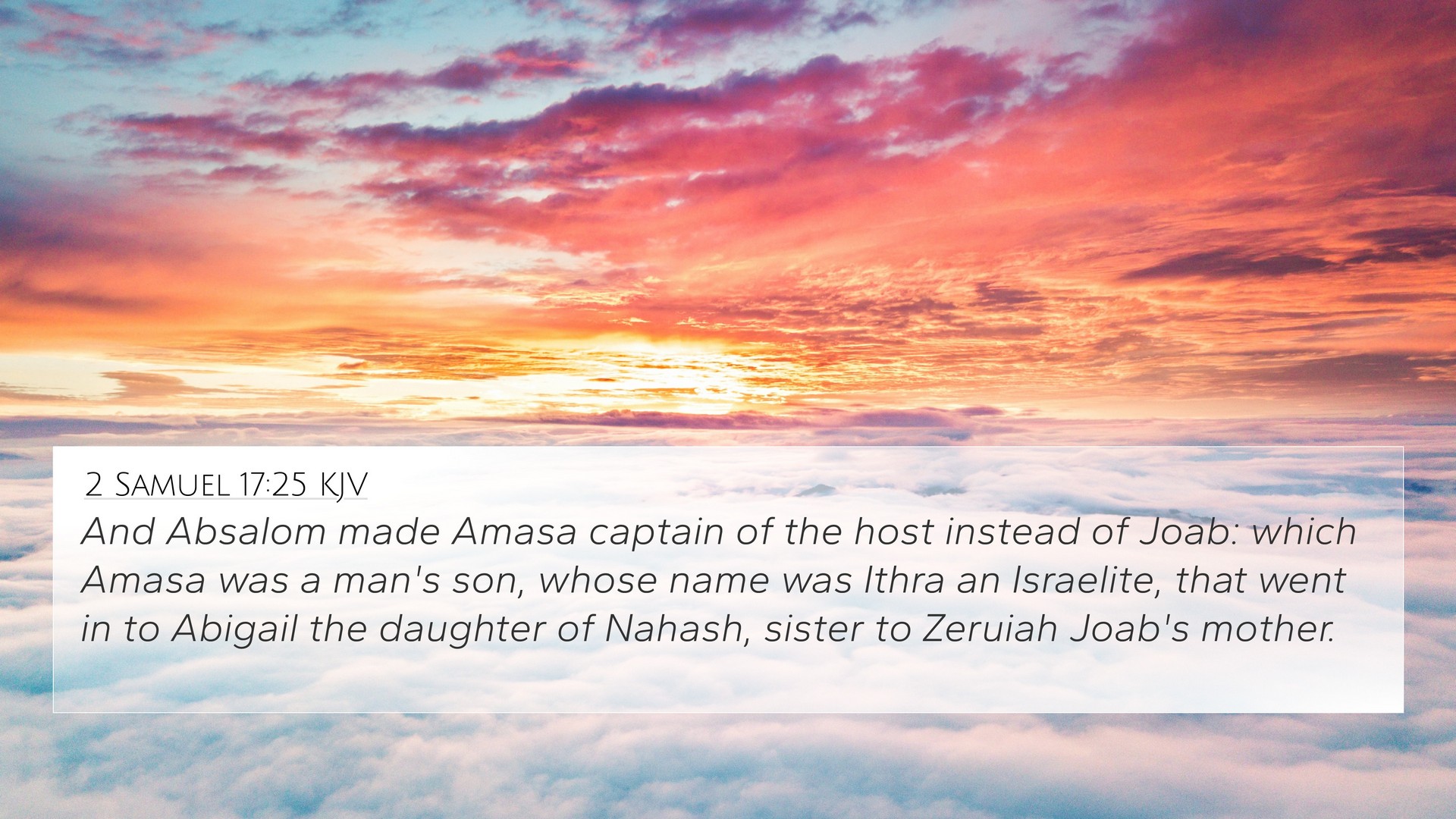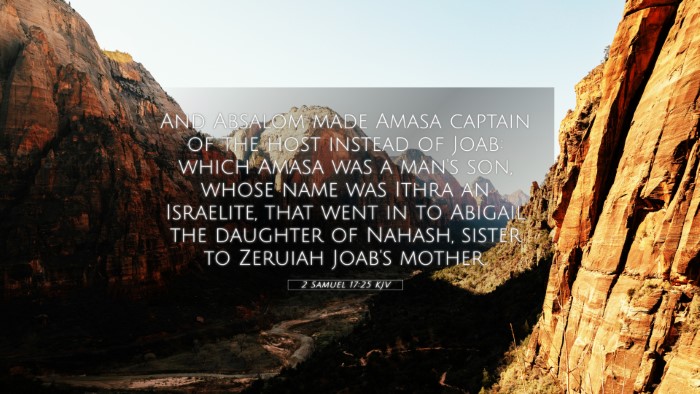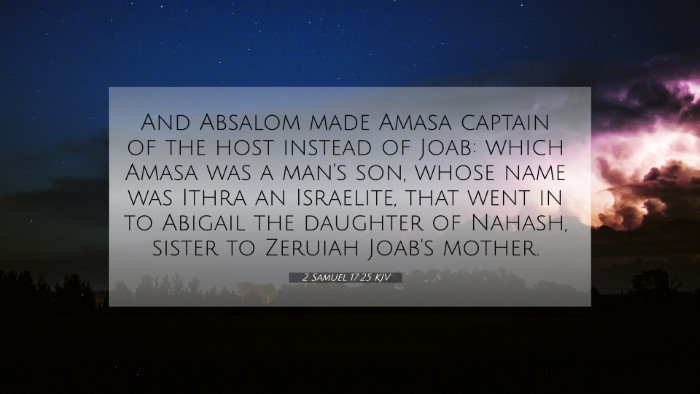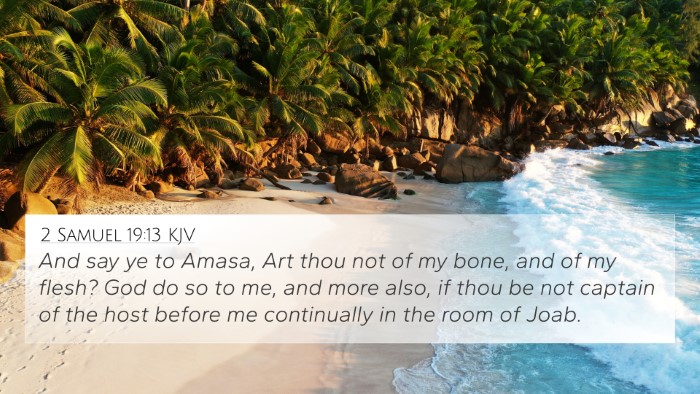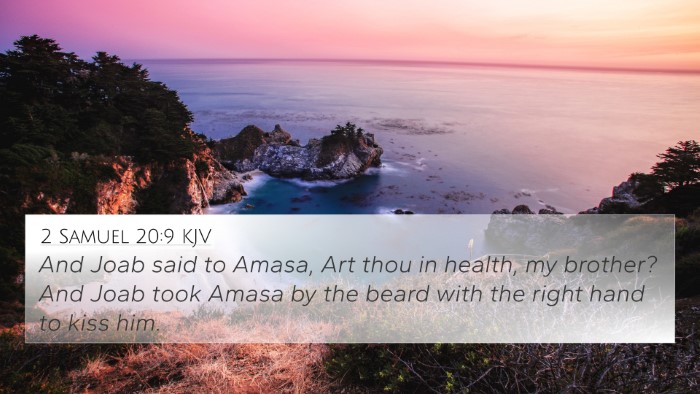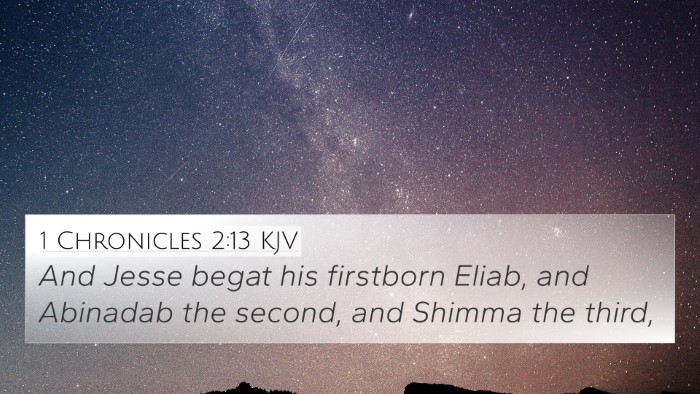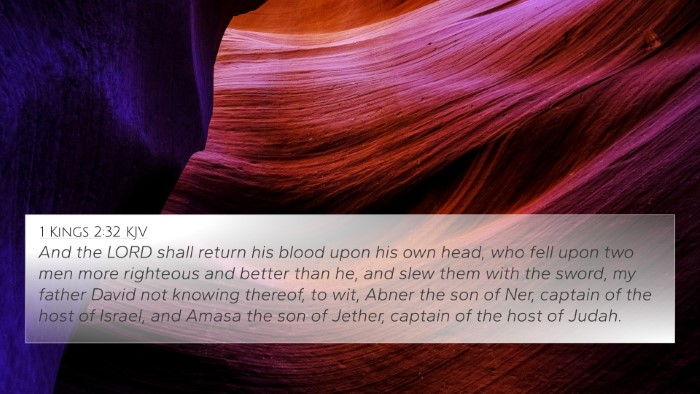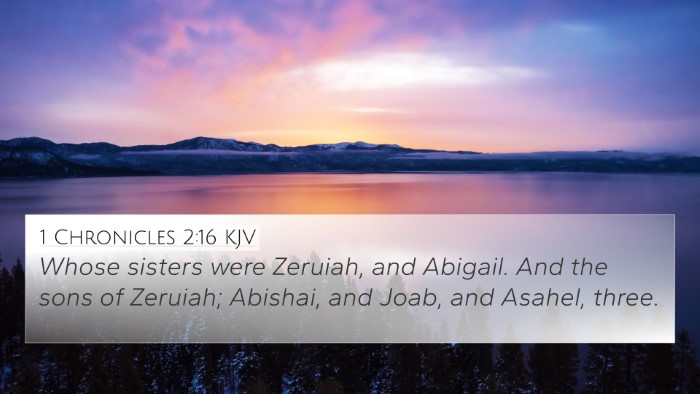Understanding 2 Samuel 17:25
Verse: 2 Samuel 17:25 - "And Absalom made Amasa captain of the host instead of Joab: which Amasa was a man's son, whose name was Ithra, an Israelite, that went in to Abigail the daughter of Nahash, sister to Zeruiah, Joab's mother."
Verse Summary
This verse delineates an important transition in the command of Absalom's army, where Amasa is appointed captain in place of Joab. It highlights the familial ties and political maneuvering at play within the narrative of Absalom's rebellion.
Commentary Insights
Matthew Henry: Henry emphasizes that Absalom’s choice of Amasa reflects a strategic decision, influenced by personal loyalty and kinship ties. Amasa's background as the son of Abigail, connected to the house of David, demonstrates the complexity of alliances during this turbulent time.
Albert Barnes: Barnes notes that Absalom's appointment of Amasa illustrates a significant shift in loyalty and confidence within Absalom's army. He highlights that Amasa's previous experience and links to David’s family were both a tactical advantage and a potential source of internal division.
Adam Clarke: Clarke points out the implications of Amasa's lineage and previous allegiances. He draws attention to how these factors may affect Amasa's loyalty towards Absalom and reflects on the political and social ramifications of using familial bonds within leadership roles.
Biblical Cross-References
- 2 Samuel 17:1-2: The plot of Absalom to overthrow David, establishing the context of this leadership change.
- 1 Chronicles 2:16: A connection through the lineage of Amasa, detailing the family ties which influenced political dynamics.
- 2 Samuel 15:12: The role of Ahithophel in Absalom’s revolt, providing further insight into the decision-making environment.
- 2 Samuel 20:4: Amasa's command is further elaborated upon later, illustrating his role in the troubles during this period.
- 1 Samuel 26:6: Joab’s past actions and implementations concerning David and his family tie into his downfall.
- 2 Samuel 16:9: Joab's established position and implications of Amasa’s rise in contrast to Joab's service.
- 1 Chronicles 12:18: The soldiers of David aligning with the house of David illustrating loyalty dynamics in the context of Israeli leadership.
Thematic Analysis
The themes presented in this verse delve into the concepts of loyalty, familial ties, and the political maneuverings that can lead to significant changes in command structures within a nation's leadership. These dynamics offer a broader context for understanding power struggles, especially in turbulent times.
Political Dynamics
The appointment signifies a shift in favor towards those who share bloodlines, highlighting how personal affiliations can dictate leadership roles in ancient Israel.
Leadership and Loyalty
Amasa’s selection in place of Joab suggests a move towards broader support for Absalom’s rebellion, yet it also risks inflaming tensions with established commanders.
Conclusion
2 Samuel 17:25 serves as a microcosm of the larger political and familial intrigues at play during Absalom's rebellion against David. The nuances of leadership, loyalty, and inter-family relationships provide rich material for further theological reflection and study.
Tools for Bible Cross-Referencing
To dive deeper into the connections between this verse and others in scripture, one may utilize:
- Bible concordance
- Bible cross-reference guide
- Cross-reference Bible study resources
Final Thoughts
Understanding 2 Samuel 17:25 not only requires examining the text itself but recognizing the broader narrative and theological implications surrounding leadership choices during pivotal moments in Biblical history.
